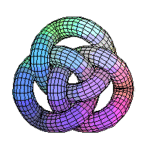 Is psychoanalytic psychotherapy empirically validated?
Is psychoanalytic psychotherapy empirically validated?
Is psychoanalytic psychotherapy empirically validated? The short answer is, yes. And empirical support for this long-established approach is rapidly growing.
Why do some people assume that it isn’t evidence-based? Probably because empirical research on psychoanalytic psychotherapy has been slower in coming than for some other clinical approaches.
There are a number of reasons why empirical validation of psychoanalytic psychotherapy has lagged behind other therapeutic approaches.
First, psychoanalytic psychotherapy is relatively difficult to assess with standard empirical techniques. Empirical research typically relies on quantitative data, observable outcomes, unvarying procedures applied across cases, large sample sizes, and replication of findings. Experiments with random assignment to discrete conditions with a control group (i.e., randomized-controlled studies) are considered the “gold standard” in research because they are highest in internal validity (i.e., determining cause-effect relationships). Each of these elements is problematic for psychoanalytic psychotherapy.
Let’s first consider the type of data involved. The aim of psychoanalytic psychotherapy is not merely to reduce problem behaviors; rather, it is to help deepen self-understanding and to achieve some outcomes that are important for an individual’s quality of life but difficult to measure. Psychoanalysis and psychoanalytic psychotherapy provide a setting where an individual’s personal truths can become known, understood, and shared. Some outcomes may be assessable through self-report, rating scales, or behavioral outcomes. Patient self-reports, however, may not reflect the deeper, sometimes ineffable changes that lead to greater health. Their validity can also be undermined by fabrications and/or a patient’s wish to validate (or invalidate) a treatment process. Even observable behavior change does not always accompany or reflect growth and improved well-being attained in psychoanalytic psychotherapy.
As we are complex creatures, psychoanalytic theories are also inherently complex, providing models for appreciating the uniqueness of the human experience. These models are difficult to understand, let alone to operationalize, by a researcher who is not an experienced psychoanalytic psychotherapist. And most researchers are not experienced psychoanalytic psychotherapists.
Then, there are procedures that must be standardized across cases in research studies. Psychoanalytic psychotherapy considers such constructs as the changing phenomenology of the patient and the transference relationship with the clinician—both difficult, if even possible, to replicate in a meaningful way, as each case is unique. The gold standard of research involves random assignment to condition. Random assignment requires that discrete conditions be pre-determined, which may be difficult, if even feasible, when the clinician’s focus is on responding to the changing, unconscious needs of an individual. Is psychoanalytic psychotherapy empirically validated? Because research involving psychoanalytic psychotherapy has tended to involve observational or case studies, the studies have not always been “counted” as evidence. Hence, the approach is often assumed not to be evidence-based.
Furthermore, psychoanalytic psychotherapy often deals with issues that cannot be resolved quickly. This factor has several implications. First, many researchers depend on number of publications for tenure, academic promotion, etc., making long-term studies less desirable. No wonder there are so many more outcome studies on cognitive-behavior therapy (CBT). And, statistical power relies on having a large enough sample size to reveal subtle differences. When therapy is individualized and longer term, gathering a large sample is impractical.
Finally, psychoanalytic psychotherapy occurs through the relationship with the therapist—a vehicle that is viewed as sacred and to be protected from contamination by outside factors. As such, psychoanalytic psychotherapists have tended to be suspicious of and protective against incorporating empirical assessments that could influence the therapeutic process.
In contrast, cognitive-behavior therapy focuses on modifying observable behaviors and/or conscious cognitions, with protocols that are brief, relatively simple to manualize, and conducive to randomized controlled studies. Consequently, many research studies have been published on this approach, leading some to assume that it is the only valid type of therapy for many conditions. A self-fulfilling prophecy is then also engaged, with greater recognition leading to greater access to further research funding, for even more outcome studies and confidence in the approach.
Is psychoanalytic psychotherapy empirically validated? Despite the many challenges, the quality and quantity of research testing psychoanalytic psychotherapy is increasing. More proponents of the approach are becoming convinced of the importance of providing research evidence and becoming creative in ways to test its complex features. Midgley et al. (2021) recently published a narrative synthesis of such outcome studies, including a growing number of randomized-controlled studies involving psychodynamic techniques.
There are future challenges, however. More funding is needed for studies that are complex and difficult to operationalize. Randomized-controlled studies have routinely been favored by the scientific community; hopefully, observational studies will also come to “count” as empirical evidence. As noted by Midgley et al. (2021), “Whilst the findings of these studies cannot be considered as ‘rigorous’ as those of experimental studies, such studies may be more representative of a ‘real-world’ context, where treatments are not often delivered according to a specific manual, treatment length is not predetermined, and patients often present with a mixed picture of mental health issues” (p. 12).
I value the words of Eric Kandel, neuroscientist and Nobel Laureate: “Psychoanalysis still represents the most coherent and intellectually satisfying view of the mind” (1999, p. 505).
To learn more about Midgley et al.’s (2021) narrative synthesis of outcome studies on psychodynamic psychotherapy, please see their open-access article: Midgley, N., Mortimer, R., Cirasola, A., Batra, P., & Kennedy, E. [2021]. The evidence-base for psychodynamic psychotherapy with children and adolescents: A narrative synthesis. Frontiers in Psychology, 12, 1-18. doi: 10.3389/psyg.2021.662671.
You may also earn 2 CE credits for reviewing the article by registering for the online course, Evidence Base for Psychodynamic Psychotherapy With Children and Adolescents.
You may also enjoy our blog, Is Psychodynamic Psychotherapy Evidence-Based?
Interested in earning a Certificate of Advanced Study in Psychoanalytic Psychotherapy? Simply complete 48 CE credits with our psychoanalytic courses, including at least three course courses. Entirely online, accessible 24/7, and paced at your convenience.
![]() The Institute of Advanced Psychological Studies is approved by the American Psychological Association to sponsor continuing education for psychologists. The Institute of Advanced Psychological Studies maintains responsibility for this program and its content.
The Institute of Advanced Psychological Studies is approved by the American Psychological Association to sponsor continuing education for psychologists. The Institute of Advanced Psychological Studies maintains responsibility for this program and its content.


 How Lacan’s theory can be helpful in psychotherapy may not be obvious and is often overlooked.
How Lacan’s theory can be helpful in psychotherapy may not be obvious and is often overlooked.

 As a practicing psychoanalyst for the past 30-plus years, I have sought to integrate the wisdom from many mentors. My supervisors and training analyst guided me through the collected works of
As a practicing psychoanalyst for the past 30-plus years, I have sought to integrate the wisdom from many mentors. My supervisors and training analyst guided me through the collected works of 
 What is the value of having your head examined? Of psychotherapy? The profession of psychotherapy has been around for over 100 years, with less formal versions of personal consultation going back to biblical times. So why is it that the voluntary seeking of psychotherapy can be such a polarizing issue?
What is the value of having your head examined? Of psychotherapy? The profession of psychotherapy has been around for over 100 years, with less formal versions of personal consultation going back to biblical times. So why is it that the voluntary seeking of psychotherapy can be such a polarizing issue?  Can’t we simply choose happiness? As a psychologist and psychotherapist, I’ve spent the last 30 years listening to people struggle with anxieties, depression, and loneliness, in search of
Can’t we simply choose happiness? As a psychologist and psychotherapist, I’ve spent the last 30 years listening to people struggle with anxieties, depression, and loneliness, in search of 




